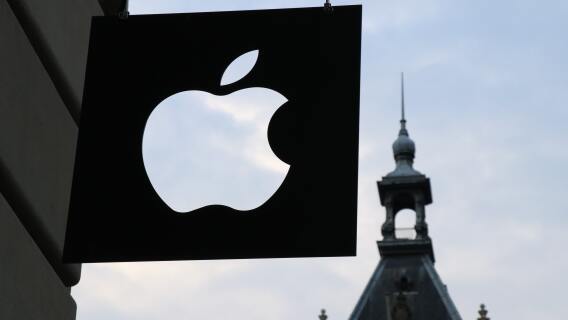Apple’s (AAPL) Worldwide Developers Conference (WWDC) is always a notable event for tech investors and Apple shareholders. The WWDC highlights upcoming products, new integrations, apps, and features, and helps outline the company’s priorities for the near future. This year, one seemingly small decision made by Apple has positioned it as one of the best AI stocks in the marketplace, but we’ll get to that later.
Unsurprisingly, the signature announcement of this year’s WWDC (on June 10) was “Apple Intelligence,” Apple’s take on AI. Prior to the Apple Intelligence announcement, the company made repeated references to machine learning (perhaps to further differentiate the Apple Intelligence offering later in the presentation) and showcased a number of offerings that rely on machine learning, such as improved text (handwritten) recognition.
One feature that, perhaps surprisingly, was received well online was the new Calculator tool, which makes real-time adjustments to calculations when handwritten variables are updated.
You can find a list of some of the biggest updates here, or you can watch the presentation in its entirety on YouTube if you’re so inclined.
[text_ad]
Apple’s AI-focused product rollout was, at first blush, relatively lackluster. In the presentation, the company emphasized privacy and security, a major contrast to Microsoft which came under fire for their recently announced “Recall” tool, which is essentially integrated spyware that periodically takes screenshots of your computer, a privacy nightmare that allows you to visually retrace your steps on a PC to do … something.
Microsoft has since, wisely, made that an opt-in feature and largely walked the offering back.
Apple made it a point of emphasis that they are not logging or sharing user data, and they pointed out that any requests that are shared outside of your device will prompt additional approval.
But the features themselves left something to be desired. You can now generate images using Apple software to share via text, and if you’re working on Apple hardware, it will automatically suggest improvements to your emails, messages, writing, etc.
These are tools that have been available since the emergence of ChatGPT and are hardly groundbreaking.
The most notable improvement, at least for users, is Siri’s new capabilities, such as picking up on dates and times in text and emails and offering nudges or reminders. It’s a natural progression towards making Siri a true virtual assistant.
As I said, hardly groundbreaking. So, why am I making the argument that Apple became the best AI stock in the market? Because it’s not going all-in on AI…
Apple is acknowledging the limitations of large language models (LLMs) and “generative intelligence.” Instead of promising features that may never be possible and committing to making huge capital expenditures in support of those hypothetical features, Apple has loosely enabled OpenAI access via their software (they’re paying for the privilege, but I don’t know how much) and is offering AI tools that they likely know users are already using.
Apple has a dominant position in consumer technology and, between iPhones, iPads and Macs, is well aware of how its ecosystem users actually engage with consumer-level AI.
They occasionally make images, ask it for recipes or use it to punch up emails and resumes.
OpenAI’s Sam Altman has called for a multi-trillion-dollar investment in chip fabrication to support the next generations of their LLMs; Microsoft and Google are spending billions on CoPilot and the search AI Overview. And what do they have to show for it?
Well, Google’s AI Overview search tool has suggested adding glue to pizza sauce to help keep the cheese in place and running with scissors for cardio health.
Rather than throwing billions or tens of billions of dollars at building new data centers in the hope that they’ll find some undiscovered AI opportunity, Apple is preserving its $67 billion cash hoard and delivering the AI tools that it knows its users will take advantage of while offering access to more extensive AI tools on an as-needed basis.
It’s not much different from the stance Toyota (TM) took during the EV boom, avoiding going all-in while building out its portfolio of hybrid models. In hindsight, that appears to have been a wise, if conservative, move.
Apple isn’t eschewing AI entirely, they’re just not chasing the AI hype train. Should it flame out in the same way the early internet did, Apple will be sitting pretty with piles of cash on hand and its still-dominant position in consumer tech. The AI boom could go on for months or even years, but when it’s all said and done, Apple’s decision to prioritize shareholder value makes it the one Magnificent Seven stock I’d want to own if the AI bubble bursts.
[author_ad]

